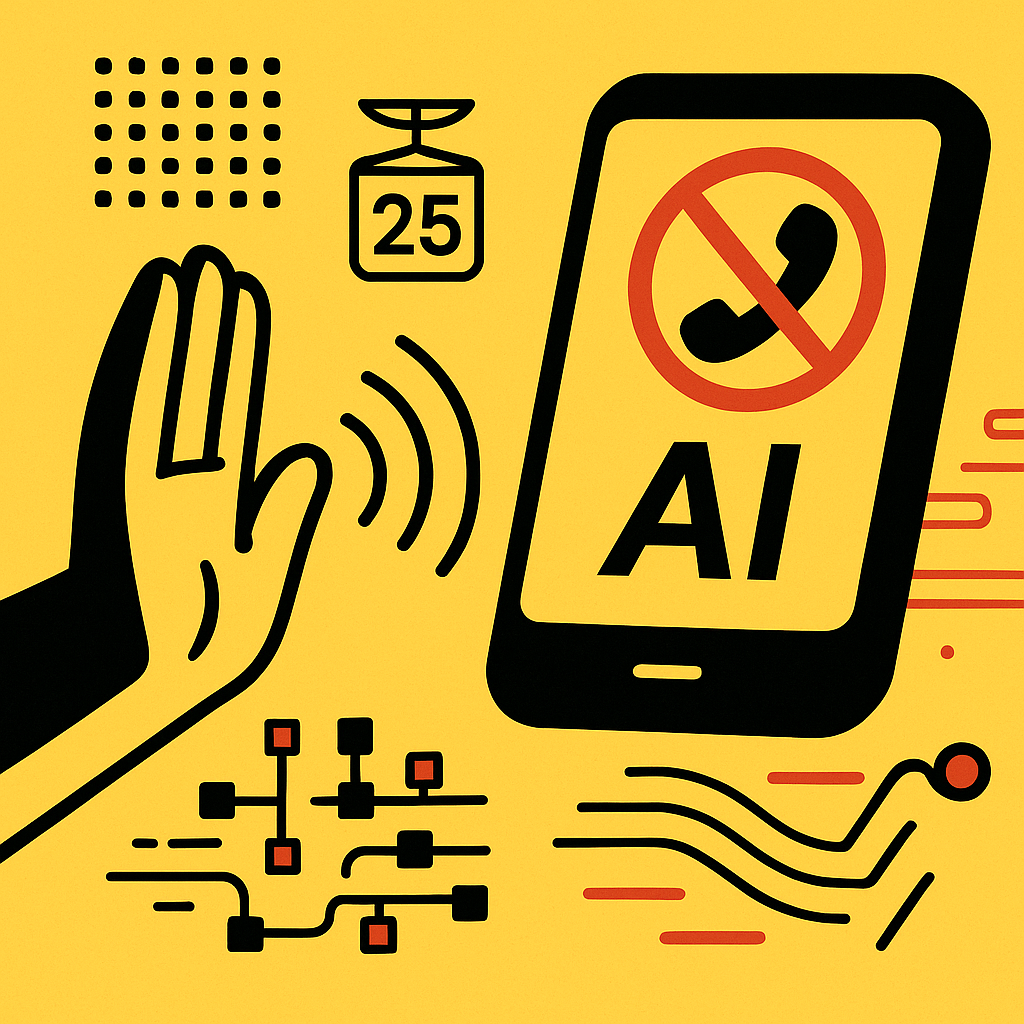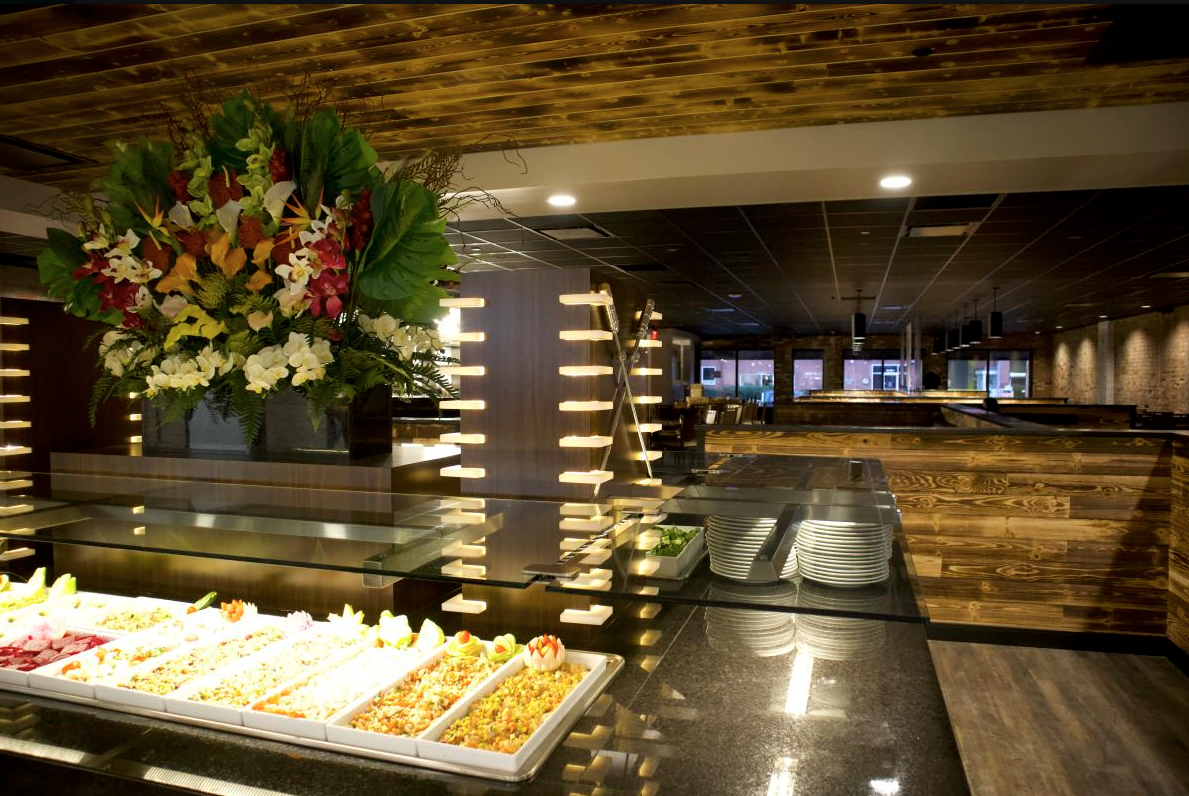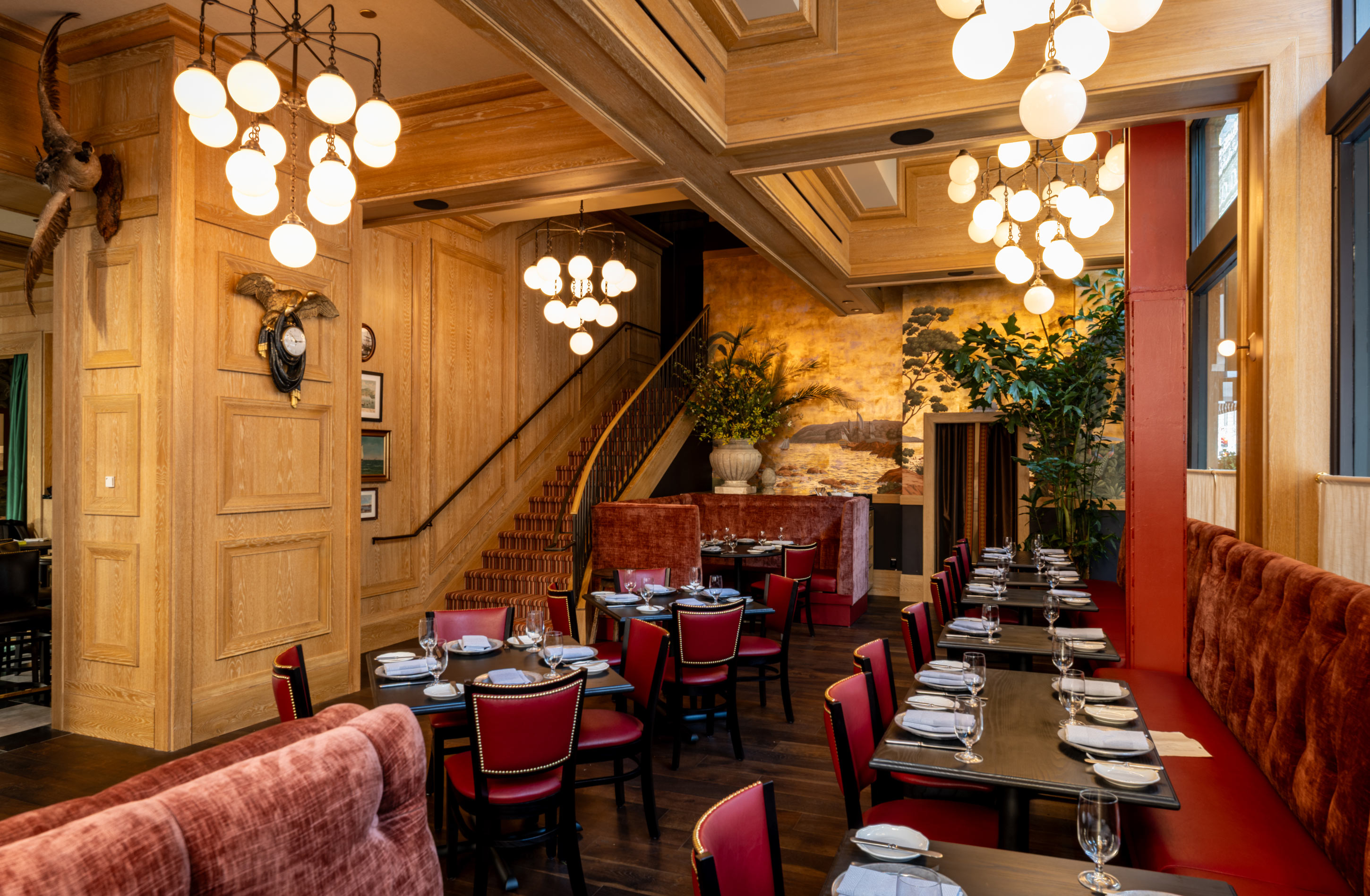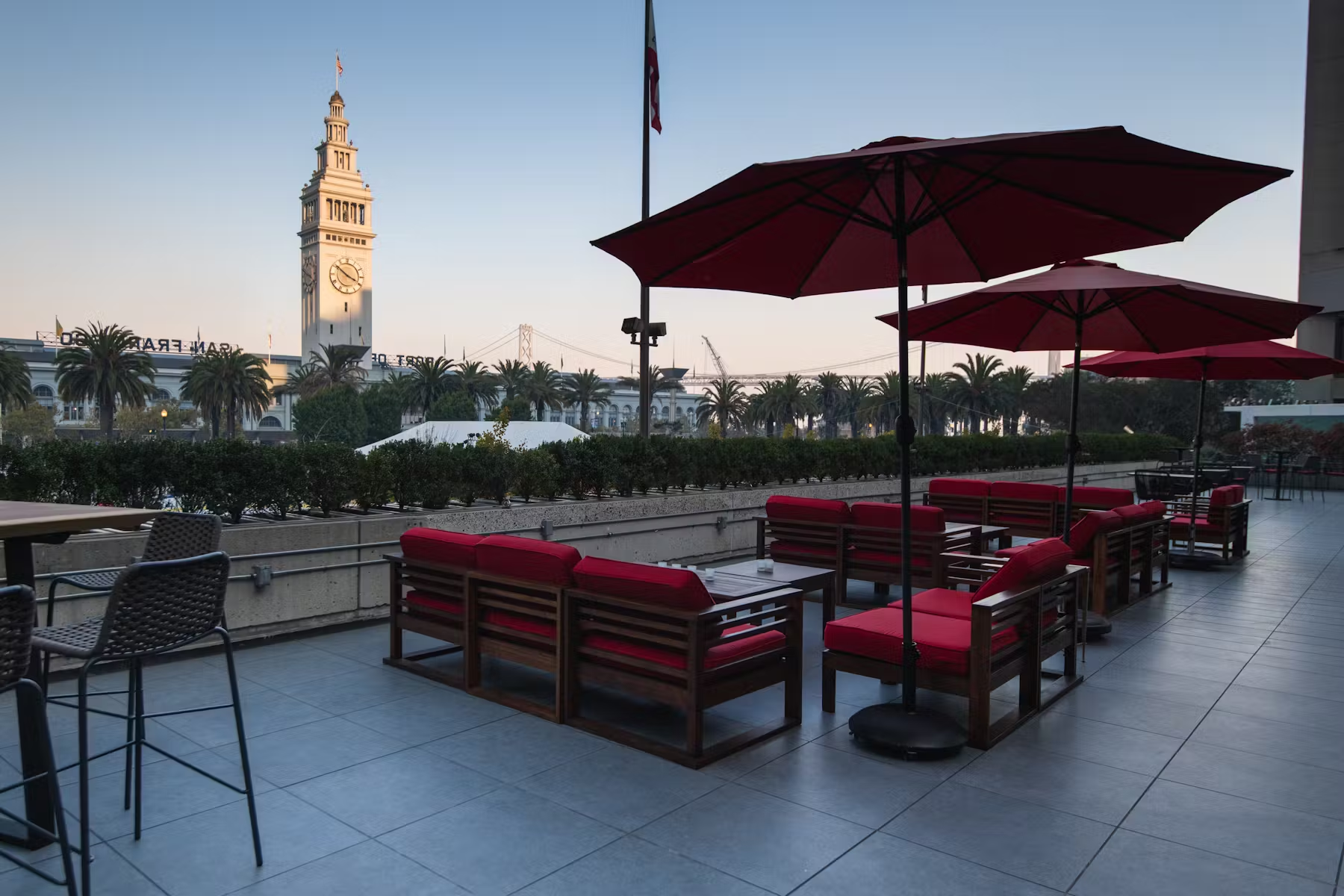
With 4.5 billion robocalls hitting Americans each month, spam calls have become more than just an annoyance—they're a real operational drain on restaurants. Every missed legitimate call could mean a lost reservation, a frustrated customer, or missed revenue opportunities. (Restaurant Tech Trends Q4 2025: Voice AI New Front Door)
The restaurant industry faces a unique challenge: restaurants receive between 800 and 1,000 calls per month, yet only 10 percent of these calls result in actual reservations or orders. (Restaurant Tech Trends Q4 2025: Voice AI New Front Door) This means operators are dealing with hundreds of spam calls monthly while trying to capture genuine customer inquiries.
Fortunately, AI receptionists are stepping up to solve this problem. These intelligent systems use sophisticated databases and pattern recognition to automatically filter out spam while ensuring legitimate customers always get through. (The Best 8 AI Phone Answering Services for Restaurants) With the FCC's 2024 ban on AI-generated robocalls adding new compliance requirements, restaurant operators need to understand both the protective capabilities and legal obligations of their phone systems.
Spam calls don't just interrupt your day—they actively hurt your bottom line. When your staff spends time answering robocalls, they're not available to take legitimate reservations or handle customer service issues. This is particularly problematic during peak hours when every minute counts.
Newk's Eatery, a 100-unit chain, discovered that 10% of their business comes from phone orders. (Why Newk's Eatery is Using Robots to Answer the Phone) For restaurants like theirs, missing even a few legitimate calls due to spam overload can translate to thousands in lost revenue monthly.
The hospitality industry's chronic staffing shortage makes spam calls even more problematic. Low pay, high stress, worker competition, and reluctance from those laid off during the pandemic to return have created significant staffing challenges. (Forbes: How AI Transforming Restaurants) When you're already short-staffed, having team members tied up with spam calls becomes an even bigger operational burden.
Modern restaurants are finding that AI hosts complement human staff by managing routine tasks, allowing human hosts to focus on high-touch interactions that enhance guest experiences and job satisfaction. (Forbes: How AI Transforming Restaurants)
The most effective AI phone systems rely on massive databases of known spam numbers. Smith.ai, for example, maintains a blocklist of over 20 million numbers, constantly updated with new spam sources. This database approach provides the first line of defense against known robocallers and telemarketing operations.
These databases are continuously updated through:
Beyond simple number blocking, advanced AI systems analyze calling patterns to identify potential spam:
Call Timing Analysis: Legitimate customers typically call during business hours or slightly outside them. Robocalls often follow predictable patterns, hitting multiple numbers in rapid succession at unusual hours.
Caller Behavior: AI systems monitor how callers interact with initial prompts. Robocalls often hang up immediately when they don't reach a human, while legitimate customers will wait or leave messages.
Geographic Patterns: Spam calls frequently originate from specific area codes or regions known for telemarketing operations. AI can flag these patterns while still allowing legitimate calls from the same areas.
When a call comes in, AI receptionists make split-second decisions based on multiple factors:
This multi-layered approach ensures that legitimate customers get through while spam calls are filtered out automatically.
In February 2024, the Federal Communications Commission (FCC) issued a declaratory ruling that fundamentally changed how AI-generated voices are regulated. The ruling confirmed that AI-generated voices fall under the Telephone Consumer Protection Act (TCPA), which governs telemarketing phone calls and text messages. (2025 TCPA & FCC Compliance Checklist)
This means AI-generated human voices are considered 'artificial or prerecorded voice[s]' under the TCPA, subject to the same strict consent requirements as traditional robocalls. (2025 TCPA & FCC Compliance Checklist)
The ruling primarily affects outbound calls made by AI systems. If your restaurant uses AI to:
You must ensure proper consent has been obtained from customers before making these calls.
Important distinction: The ruling does NOT affect AI systems that answer incoming calls to your restaurant. When customers call you, they're initiating the contact, so TCPA consent requirements don't apply to your AI receptionist's responses.
For any outbound AI-generated calls, restaurants must:
Restaurants face unique spam challenges due to their high call volumes. A typical 50-seat bistro averages 1,200+ monthly calls, creating numerous opportunities for spam to slip through. (Hostie AI vs Loman: 2025 Feature Comparison)
This volume makes manual spam filtering impossible. Staff simply don't have time to screen every call, especially during busy service periods.
In multicultural cities like Toronto and Montreal, restaurants deal with spam calls in multiple languages. AI systems offer a distinct advantage with their multilingual capabilities, enabling them to identify spam patterns across different languages while maintaining smooth communication with diverse clientele. (Forbes: How AI Transforming Restaurants)
Restaurants are frequently targeted by specific types of spam:
AI systems trained on restaurant operations can better identify these industry-specific spam patterns.
Modern AI receptionists don't just block obvious spam—they intelligently screen all incoming calls. When a call comes in, the system:
The biggest concern with spam blocking is accidentally filtering out legitimate customers. Advanced AI systems minimize false positives through:
Contextual Understanding: AI can distinguish between a robocall script and a genuine customer inquiry, even if the caller's number isn't in any database.
Behavioral Analysis: Legitimate customers exhibit different conversation patterns than automated systems, allowing AI to make accurate determinations.
Fallback Protocols: When in doubt, the system errs on the side of caution, allowing questionable calls through rather than risk blocking a real customer.
The best AI receptionists integrate spam protection with restaurant-specific functions:
Before choosing an AI phone system, restaurant operators should verify their provider meets these compliance and privacy standards:
Investing in AI-powered spam protection delivers measurable returns for restaurants:
Staff Productivity: When staff aren't interrupted by spam calls, they can focus on revenue-generating activities. Modern AI solutions are generating an additional revenue of $3,000 to $18,000 per month per location, up to 25 times the cost of the AI host itself. (Q3 2025 Restaurant Tech Trends)
Customer Experience: Legitimate callers get through faster when spam isn't clogging the lines. This improved responsiveness directly translates to more reservations and orders.
Operational Efficiency: Restaurants field a high volume of phone calls from inquisitive tourists or diners running late. (When You Call a Restaurant) AI systems handle these routine inquiries automatically while blocking spam, freeing staff for higher-value tasks.
The Voice AI market is projected to expand from $10 billion to $49 billion by 2029, indicating widespread adoption across industries. (2025 TCPA & FCC Compliance Checklist) For restaurants, this growth represents both opportunity and necessity as customer expectations evolve.
Early adopters are already seeing significant benefits. If you recently called up a restaurant in New York City, Miami, Atlanta, or San Francisco, chances are you have spoken to one of these AI voice assistants. (When You Call a Restaurant)
When evaluating AI receptionist systems for spam protection, consider these factors:
Restaurant-Specific Training: Systems designed specifically for restaurants understand industry terminology, common customer requests, and typical spam patterns. Hostie AI, for example, delivers restaurant-native conversational AI with 85%+ prompt coverage. (Hostie AI vs Loman: 2025 Feature Comparison)
Integration Capabilities: The best systems integrate seamlessly with existing reservation and POS systems, enhancing operational efficiency and customer satisfaction. (When You Call a Restaurant)
Multilingual Support: In diverse markets, systems with 20+ language support can better serve customers while identifying spam across different languages. (Hostie AI vs DineAI vs TakeOrder.ai Comparison)
Track these metrics to evaluate your spam protection effectiveness:
Spammers continuously evolve their tactics, making adaptive AI systems essential:
Voice Cloning: Scammers are using AI to clone voices of business owners or employees. Advanced AI receptionists can detect these synthetic voices through subtle audio analysis.
Social Engineering: Spam calls are becoming more sophisticated, using publicly available information about restaurants to seem legitimate. AI systems trained on these tactics can identify suspicious patterns.
Regulatory Changes: As regulations evolve, your AI system should automatically update to maintain compliance without manual intervention.
The global food automation market is projected to reach $14 billion by the end of 2024, with a potential 69% increase in AI and robotics use in fast food restaurants by 2027. (Q3 2025 Restaurant Tech Trends) This growth will bring more sophisticated spam protection capabilities.
To future-proof your restaurant's phone system:
Spam calls represent a significant operational challenge for restaurants, but AI receptionists offer a sophisticated solution that goes far beyond simple call blocking. By leveraging massive databases, pattern recognition, and real-time analysis, these systems can effectively filter out spam while ensuring legitimate customers always get through.
The FCC's 2024 ruling on AI-generated voices adds important compliance considerations, but primarily affects outbound calls rather than incoming call management. Restaurant operators who understand these regulations and implement proper compliance measures can confidently deploy AI systems to protect their phone lines.
With the Voice AI market projected to grow from $10 billion to $49 billion by 2029, and restaurants already seeing returns of $3,000 to $18,000 per month per location from AI implementations, spam protection is just one benefit of a comprehensive AI phone system. (Restaurant Tech Trends Q4 2025: Voice AI New Front Door)
The key is choosing a restaurant-specific solution that understands your industry's unique challenges and integrates seamlessly with your existing operations. Companies like Hostie, Newo.ai, Slang, RestoHost, Revmo, and PolyAI are not just managing bookings; they are engaging in natural conversations, handling multiple languages, and showcasing soft skills previously thought to be exclusive to humans. (Forbes: How AI Transforming Restaurants)
By implementing the compliance checklist provided and following best practices for system selection and deployment, restaurant operators can effectively spam-proof their phone lines while staying compliant with 2025 FCC rules. The result is improved operational efficiency, better customer service, and protection from the billions of spam calls that plague businesses every month.
💡 Ready to see Hostie in action?
Don't miss another reservation or guest call.
👉 Book a demo with Hostie today
AI receptionists use advanced databases and pattern recognition technology to identify spam calls in real-time. They analyze caller behavior, number patterns, and cross-reference against known spam databases to block the 4.5 billion robocalls that hit Americans monthly. This ensures legitimate customer calls get through while filtering out unwanted spam.
Under 2025 FCC rules, AI-generated voices are considered 'artificial or prerecorded voices' under the TCPA and require strict consent requirements. Restaurant AI systems must obtain proper consent before making outbound calls and clearly identify themselves as AI when answering calls. Non-compliance can result in significant penalties.
Restaurants typically receive 800-1,000 calls monthly, but only 10% result in actual reservations or orders. With spam calls disrupting legitimate business, restaurants can lose $3,000-$18,000 per month in potential revenue. AI receptionists help capture these missed opportunities by filtering spam and ensuring real customers get through.
Yes, advanced AI receptionist systems like Hostie AI offer natural conversation capabilities with 20+ language support. This allows restaurants to serve diverse customer bases effectively while maintaining spam protection across all languages. The AI can seamlessly switch between languages during conversations.
When customers call restaurants with AI receptionists, they experience natural conversations that can handle reservations, answer questions about hours and menus, and escalate complex issues to human staff. The AI first filters out spam calls, then engages legitimate customers with restaurant-specific knowledge, ensuring no revenue opportunities are missed due to busy phone lines or spam interference.
Modern AI receptionists like Hostie AI deliver 85%+ prompt coverage for restaurant-specific conversations, handling routine inquiries with high accuracy. They excel at consistent service 24/7 without the variability of human performance, while still escalating complex situations to human staff when needed. This combination ensures both efficiency and quality customer service.
RELATED


